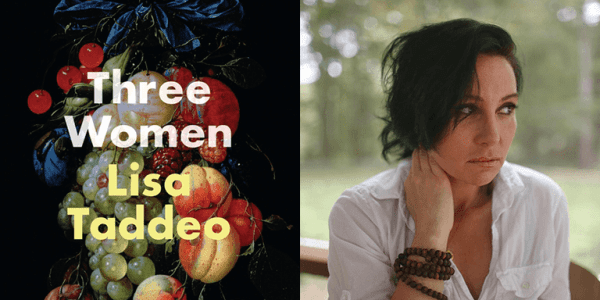“There is nothing safer than wanting nothing,” Lisa Taddeo writes in the final pages of her debut book, Three Women, released this month. “But being safe in that way does not inure you from illness, pain and death.”
Feminist critic Jia Tolentino recently wrote: “We are all defined by our historical terms and conditions, and these terms and conditions have mostly been written by and for men. Any woman whose name has survived history has done so against a backdrop of male power. Until very recently, we were always introduced to women through a male perspective. There is always a way to recast a woman’s life on women’s terms.”
I kept thinking about this line, “a woman’s life, on women’s terms,” while I read Lisa Taddeo’s gale-force-polemic on the lives of three women. The book has been compared to Truman Capote’s In Cold Blood by none other than Elizabeth Gilbert, and has had roaring support from big names including Caitlin Moran, Gwyneth Paltrow and Dave Eggers.
The book weaves the tales of three separate women. All three live in America and all three are white and middle-class. But the emotional terrain that is interrogated in these narratives is universal and unprecedented.
Maggie is a young woman, a daughter of alcoholic parents. She is taking her high school teacher to court. He did inappropriate things to her while she was under his care, and now she wants to make sure he is brought to justice.
Sloane is married to a man who can only get off sexually by watching her have sex with other men.
Lina is married to a man who has not kissed her in the last 11 years. Their marriage is swollen with a prodigious loneliness most people get married in order to avoid. She seeks attention and sex through an old flame she finds on Facebook.
These women have their lives shaken and punctured by circumstance and trauma, by vulnerability and, above all, by the actions of the men around them. All three women and the women around them are ‘misused, ignored’. This book is about how female desire is violently compromised by the avariciousness of men. Their greed, their capaciousness – it’s overwhelming and often, heart-breaking to be exposed to the real capacity of feminine grief and hunger. What’s most extraordinary about this book is the way Taddeo details the oceanic power of a woman’s desire through simple, yet visual language.
I had to read Three Women over a week, which is a long time for me. Usually, I knock back a book in a few hours. This one paralysed me in ways I did not expect. The force of each scene simultaneously left me inspired by the feminine psyche, yet also, concerned by how little we think of ourselves.
Maggie finds a teacher who pays attention to her. He abuses his power. She was a girl who idealised her teacher. And he “took that adulation and sullied it.” The internal monologue of this teenage girl can belong to a woman of any age: “Sometimes, there’s nothing better on earth than someone asking you a question.”
And of course, as the author poignantly acknowledges: “So many of the fears about desire seem to be things we should have overcome years ago.”
In a scene after the trial, Maggie is working at restaurant making sandwiches. The teacher is on a float at a parade, celebrated for being Teacher of the Year. “There are two high schools in town, just as there are two Americas. There are men and there are women and one still rules the other.”
Sloane is at the mercy of her sexually controlling husband. Past trauma is inherited from her mother. One moment with her brother when she was 8-years old contaminates her idea about men for the rest of her life.
For me, the saddest story in Three Women belongs to that of Lina, whose days are altered by a single-worded text from her lover, and who just wants to be kissed. Far too often, in history, women are unseen: both publicly, and privately. Lina’s story is the most gut-wrenching, even though, on paper, as the author recognises, she had “a husband who provided for her, and healthy children. Everything was clean and in working order.”
In the end, what struck me about this book is the searing look at the exquisite complexity yet ordinariness of human frailty: “Sometimes all it takes is for another human being to nod and tell you you are not a freak, that the only thing you need, you see, is a hug.”
We need stories that revolutionise the way we are remembered: to “recast a woman’s life on women’s terms.”
Three Women is published by Simon & Schuster.
Each Friday, Women’s Agenda is sharing our ‘Book of The Week’ in this new section.


